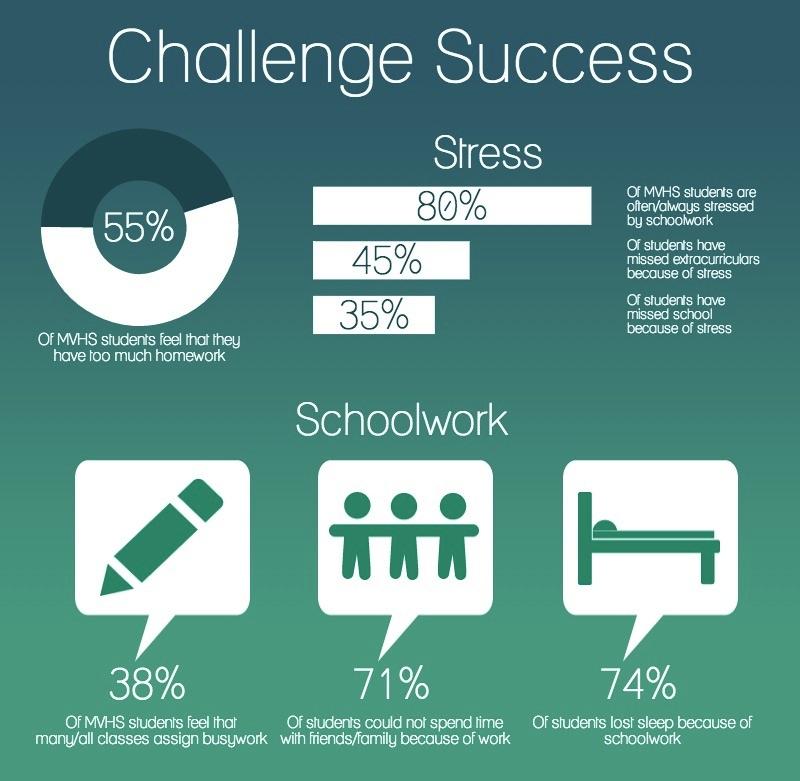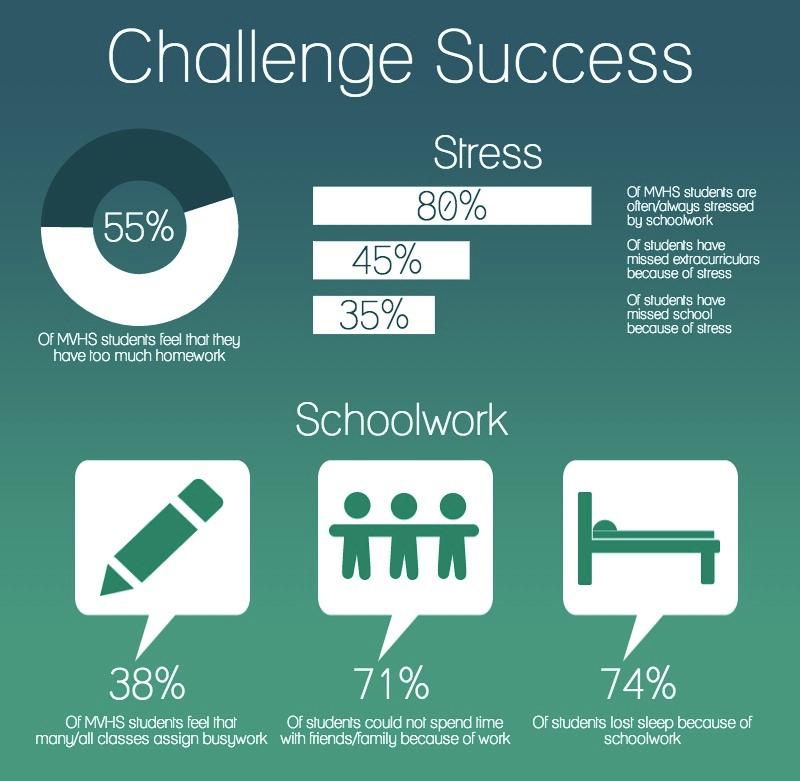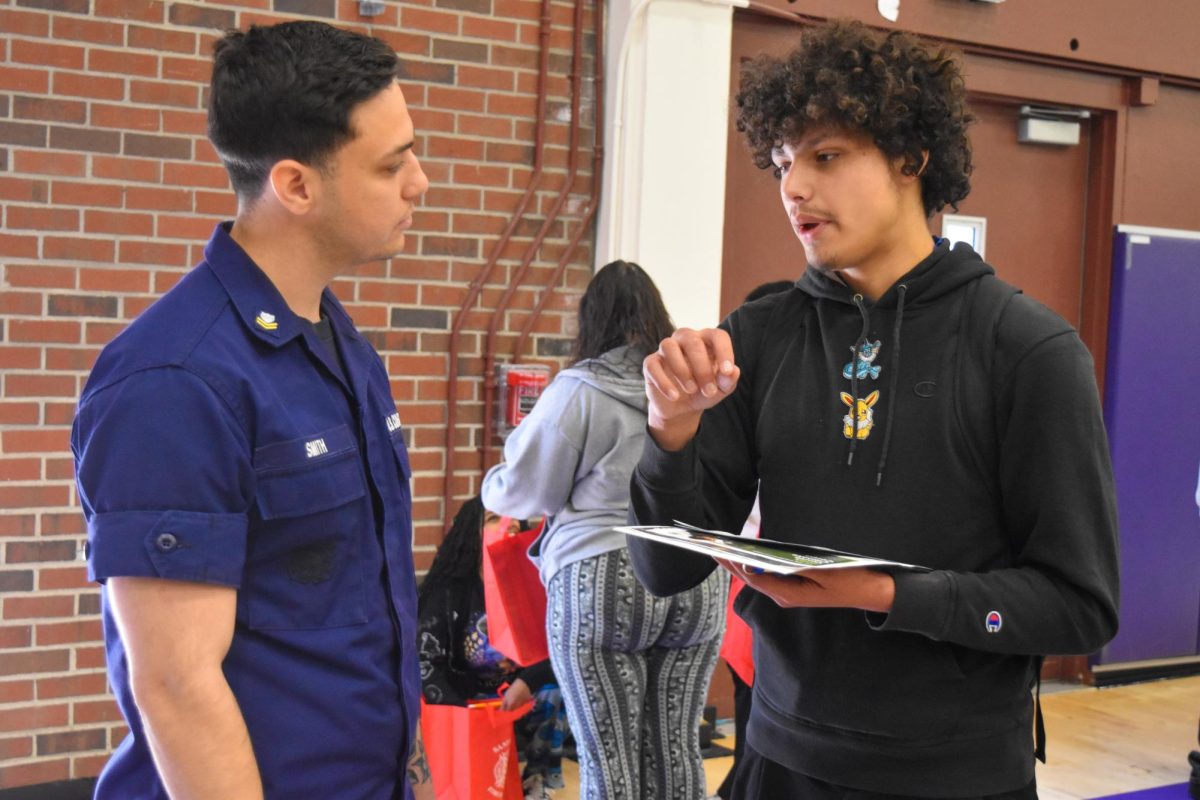efore the school year started, MVHS received the results of the Challenge Success survey
Challenge Success, which was designed to allow the Administration to understand how students feel about success and the high school experience.
is a non-profit group affiliated with Stanford University that seeks to question the focus on academic performance by identifying problems and implementing solutions within schools.
“Challenge Success is about looking at our definition of success,” MVHS Student Advocate Richard Prinz said. “[Success is] not about getting good grades to go to a good college, but also about developing a compassionate community of engaged learners, so that we’re all supporting each other and helping each other.”
According to Prinz, MVHS will use this data to improve the MVHS community. MVHS hired a statistician, who analyzed the results and found some areas that the school can improve in order to make MVHS a more comfortable environment.
“A few things that stood out the most were lack of sleep, stress related to school, and the amount of homework,” Leslie Robledo, MVHS Dean of Students, said.
The survey, which was conducted by the organization Challenge Success, shows that MVHS produces students with a good work ethic, but feel stressed by the system. The survey results show that 80% of MVHS students are often or always stressed by school, compared to the results of a 2005 study performed by the Kaiser Family Foundation, which reported that 27% of teens nationwide experienced academic stress.
Prinz acknowledges the issue of stress, and hopes that the community can work together to find solutions.
“Monta Vista’s 97th in the nation, so it’s going to be stressful,” Prinz said. “Families move here just so their families can go to Monta Vista. Some ways to make it better are maybe a later start, or no homework over the weekend, and learning better ways to cope with stressors.”
While stress is prevalent at MVHS, some do not see it as negative or harmful. One example is senior Daniel Zheng, who feels that stress is necessary to prepare students for the world outside the secluded school environment and for pushing them to their limits in order to exact the best work.
“I think it’s perfectly fine because in the real world, work is going to be hard. The people who are affected by this are not trying enough,” Zheng said. “Sometimes I feel stressed too, but then I see other people succeeding, and I feel like I need to improve myself, so I push myself to become better.”
Another prominent concern is that of teacher care and support. The survey results show that Only 60% of students feel that they have an adult in the school that they can approach with problems.
“Students need to feel more connected when they’re here at school,” Robledo said. “If they need help, or are in trouble, they need to feel comfortable going to any adult on campus.”
The combination of stress and perceived lack of support can take a toll on student confidence. Prinz thinks that teaching methods to deal with stressors and promoting more personal contact are two ways to combat the situation.
“What I’m hoping happens more is that people develop better ways to deal with stress, so that stressors don’t affect them so much,” Prinz said. “I also think that engaging with students on a more personal level, asking them how they’re doing and making more personal contact is something I hope to see increase. And these have been talked about.”
Some students are concerned about the credibility of the survey, as students were free to answer how they wanted, without fear of retribution. Some students have admitted to lying on the survey, due to boredom and frustration with the length of the study.
“The first question was list three words that describe [MVHS]. I said ‘I don’t know’,” a student who wishes to remain anonymous said. “I tried to answer on a few questions, but I got bored and tired, and made up answers later.”
Senior Eric Tan doubts the validity of the survey itself, as students were forced to participate.
“There’s no incentive for people to respond honestly,” Tan said. “They had no good reason.”
The Administration hopes that any false responses would have been rare, and that the survey data accurately reflects the beliefs of the MVHS student body.
“I would hope that they answered honestly,” said Robledo. “When I was in the library, and we were talking to students about the survey, I just told them how important it was to be able to help current and future Monta Vista students.”
While the results may have been skewed slightly, they have sparked consideration of policy change in order to reduce stress and challenge our definition of success.
“We had a team of teachers, parents and students attend a Challenge Success meeting…to solve the problems that came up during that survey,” said Robledo.
Prinz feels that the results of Challenge Success will be good for MVHS, as they will promote discussion and awareness.
“I think just hearing the results helps teachers start paying a little more attention,” Prinz said. “It’s not just the school, but it’s also teachers, parents, students, all trying to come up with ways to make it work better.”















